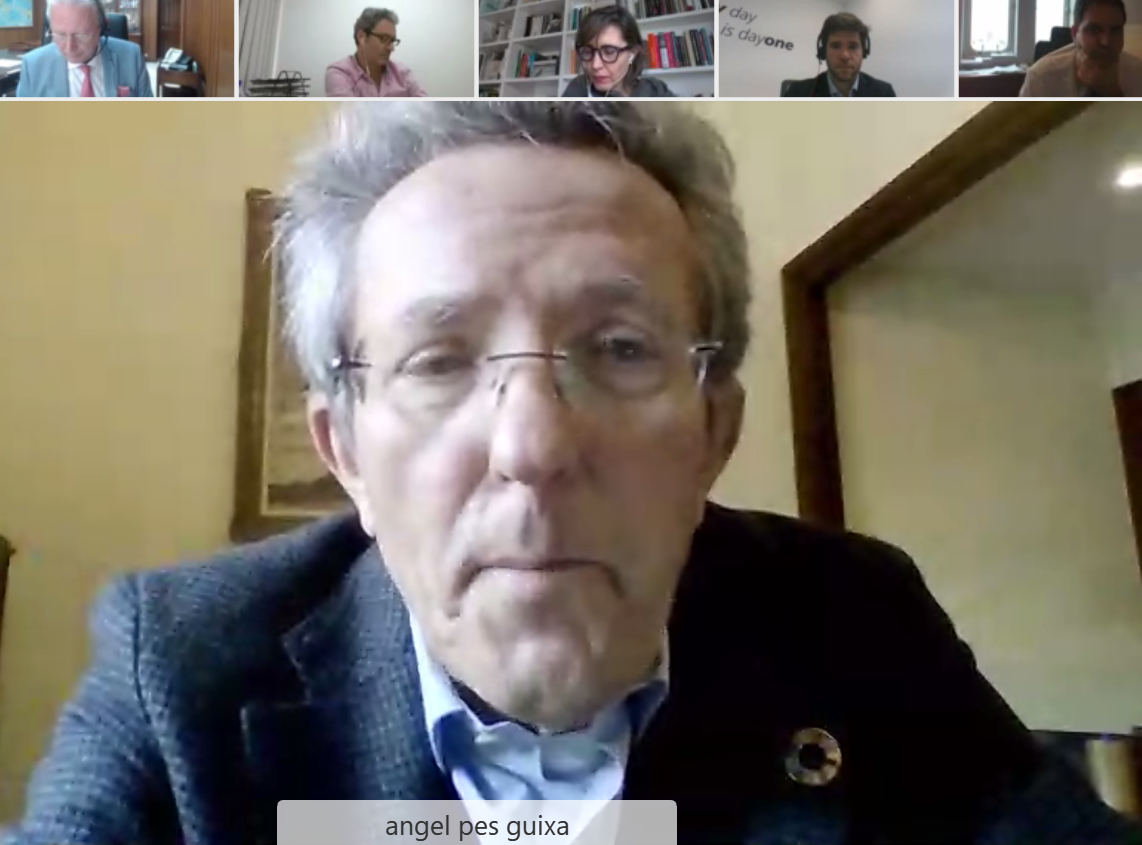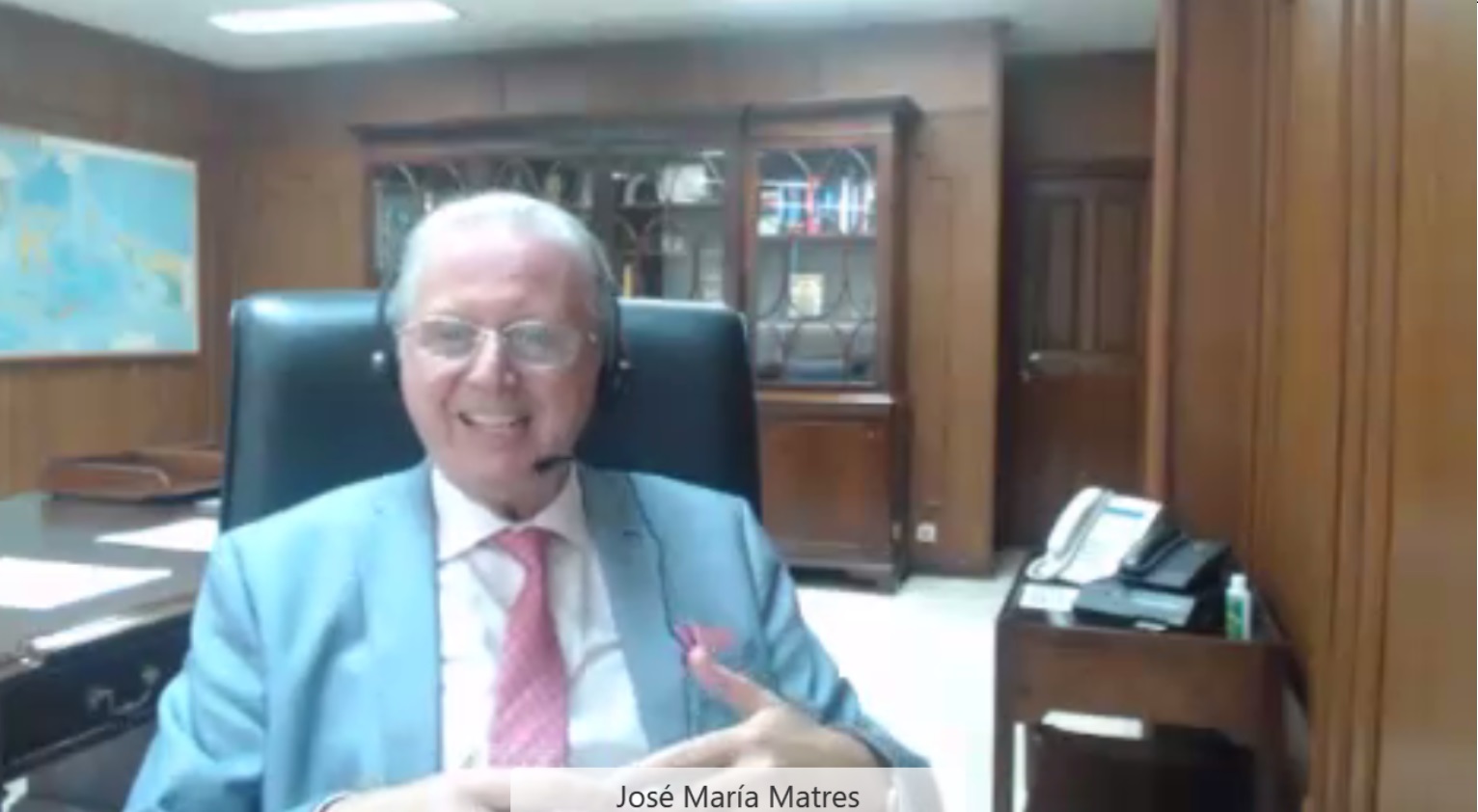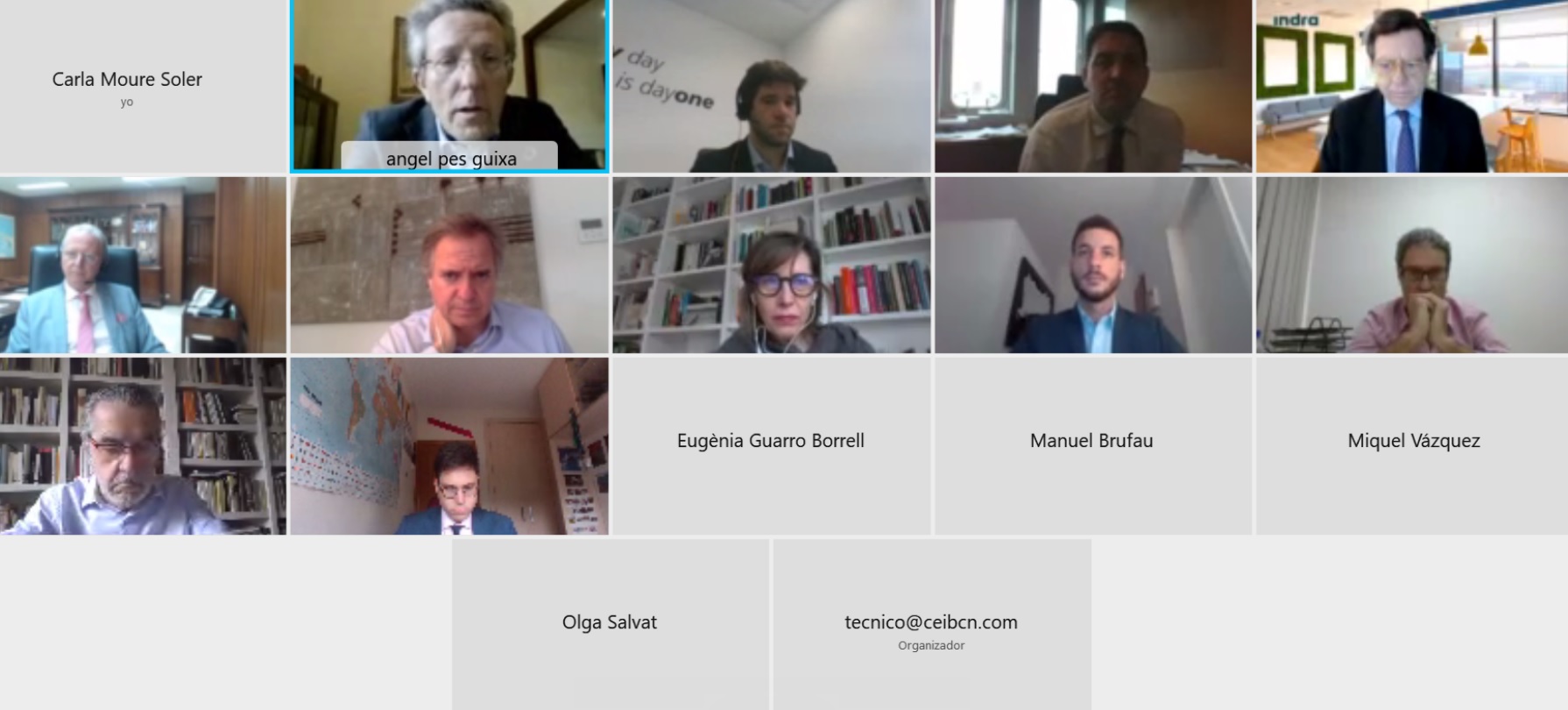On April 27, 2021, the online meeting was held with the Ambassador of Spain to Indonesia, H.E. Mr. José María Matres Manso. The event of the International Classroom program, organized by the CEI in collaboration with the Cercle d’Economia, was attended by several companies and members of the CEI.
Dr. Àngel Pes, director of the CEI, began the event by highlighting that Indonesia is one of the most populated countries in the world, its political system is democracy and the majority religion in that country is Islam. In fact, Indonesia is one of the most populous democracies in the world and the state where the most Muslims live. In addition, he mentioned that it is experiencing great economic development that has allowed the consolidation of an important middle class. Despite the great potential and growing influence of that country in Asia, Dr. Pes regretted that the economic relations between Spain and Indonesia are very limited.

The ambassador began his presentation by confirming the great economic and demographic potential of Indonesia and its growing influence both in Southeast Asia and the continent. In fact, he described Indonesia as the “economic engine” of the region and recalled that it is the main power of ASEAN and is a permanent full member of the G20. He also highlighted that the middle class is made up of approximately 70 million people who increasingly demand higher quality products, that the average income is constantly expanding and that the Indonesian authorities, especially President Joko Widodo Jokowi, have adopted a strategic plan in the future that foresees multiplying the per capita income by six and that includes an extensive development of the country’s infrastructures. In addition, he mentioned that, due to its geographical location in the Pacific Ring of Fire, the archipelago is affected by all kinds of natural disasters, from seismic movements to tsunamis, through torrential rains and volcano eruptions. This poses a great challenge for the Indonesian Government and must be considered when analyzing the economic, social and political context of the country. During his introduction he mentioned that Indonesia is a socially modern and non-confessional state, although it is generally believed that it is.
Otherwise, the Spanish business presence in Indonesia is certainly low, as are our exports to that country and bilateral investments. According to the ambassador, although it is true that Indonesia is characterized by having a particularly complicated bureaucratic system and a particularly opaque and complex market, this has not been an impediment to Spanish business in other countries and should not prevent national companies exploring the possibilities that the Asian country offers. For this reason, the diplomat invited entrepreneurs to venture into the Indonesian market and gave three tips to have a better chance of success. First, he highlighted that Asians in general, and Indonesians in particular, value personal contact very highly, which is why the Indonesian market demands a continued physical presence. In other words, the foreign entrepreneur must be in Indonesia and build trusting relationships with national partners. Second, the ambassador stated that it is necessary to have a significant financial muscle to resist the costs of settling in Indonesia until the results are obtained, which generally occur in the medium or long term. Ultimately, you need to be patient. Finally, it is highly recommended to have a trusted Indonesian partner since, on the one hand, the legislation of that country requires having a national partner and, on the other hand, it is required to have a good professional who knows the market and can establish fruitful business relationships. This point is the most difficult to achieve, but the diplomat highlighted that the Embassy of Spain advises and helps especially in this regard and relevant initiatives are being carried out in order to have good Indonesian partners. To this aim and to increase the Spanish presence, the Embassy is trying to set up a bilateral chamber of commerce.

Once the ambassador explained the social, political, and economic context of Indonesia, he went on to review some of the most notable economic opportunities for Spanish entrepreneurs. Based on his presentation, there are two sectors declared as key by the Indonesian Government that offer a multitude of opportunities for Spanish companies: the development of human resources and the economic transformation of the country, which mainly consists of the development of infrastructures in the East from Indonesia. It should be mentioned that the Indonesian government’s strategic development plan is especially ambitious, with a € 380 billion budget to develop 233 infrastructure projects. Of all the planned projects, there are 37 declared priority projects in which Spanish companies are very competitive and could bid for the tender with a high probability of success. For example, the construction of seven oil and gas refineries, five water treatment plants, four seaports, the improvement of the electricity and telephone network throughout the country, etc. are planned. Not to mention the possibilities that arise from the construction of the new capital, the future development plans foreseen from 2030, the growing Halal market or the development of tourism on various islands of the archipelago. There are great opportunities for Spanish companies, but it is necessary that they make a determined commitment to this market.
Regarding climate change, the ambassador highlighted that Indonesia is very cautious when defining its environmental policy, despite the danger posed by this challenge for the archipelago. This is due to various factors. The consumption of fossil energy is still very important; millions of jobs depend on the mining and energy sector; a large part of the population subsists thanks to palm oil plantations; families with greater political power control most of the polluting sectors and oppose the adoption of measures contrary to their interests; and the construction of the new capital, as well as many of the development projects, could be incompatible with a responsible environmental policy. Furthermore, considering that popular discontent can be exploited by radical-based Islamist parties, the Indonesian government avoids putting jobs associated with polluting activities at risk.

Next, the ambassador cited some of the main Spanish commercial operations carried out in Indonesia. He mentioned the important role of Airbus Defense in the Indonesian aeronautical sector, a market previously successfully explored by CASA until its integration into the European consortium. Indra actively operates in this same sector. In the energy sector, Siemens Gamesa stands out for having recently built the first wind farm in the country. The diplomat highlighted the presence of Repsol, Roca, Inditex, Meliá, Técnicas Reunidas, Mango and Loewe in Indonesia; He highlighted the manufacture of the Indonesian navy training ship, the Bima Suci, by the Galician shipyard Freire; and cited the joint project between the Spanish company CEPSA and the Indonesian Sinar Mas. The diplomat highlighted these cases that exemplify how with patience, perseverance and audacity, Spanish companies can obtain great profits in Indonesia.
The ambassador wanted to end his presentation by recalling that Indonesia offers great opportunities to the Spanish business community, but that it is necessary to assume a significant risk and have the clear will to enter the market. Finally, the diplomat highlighted the predisposition of all the staff of the Embassy of Spain to support Spanish companies and assured that for him it is a great satisfaction to work to increase the Spanish presence in Indonesia.
Report prepared by:
Miquel Vazquez Escolano
Student of the Master’s Degree in Diplomacy and International Organizations and the Preparation to Join the Diplomatic Corps.